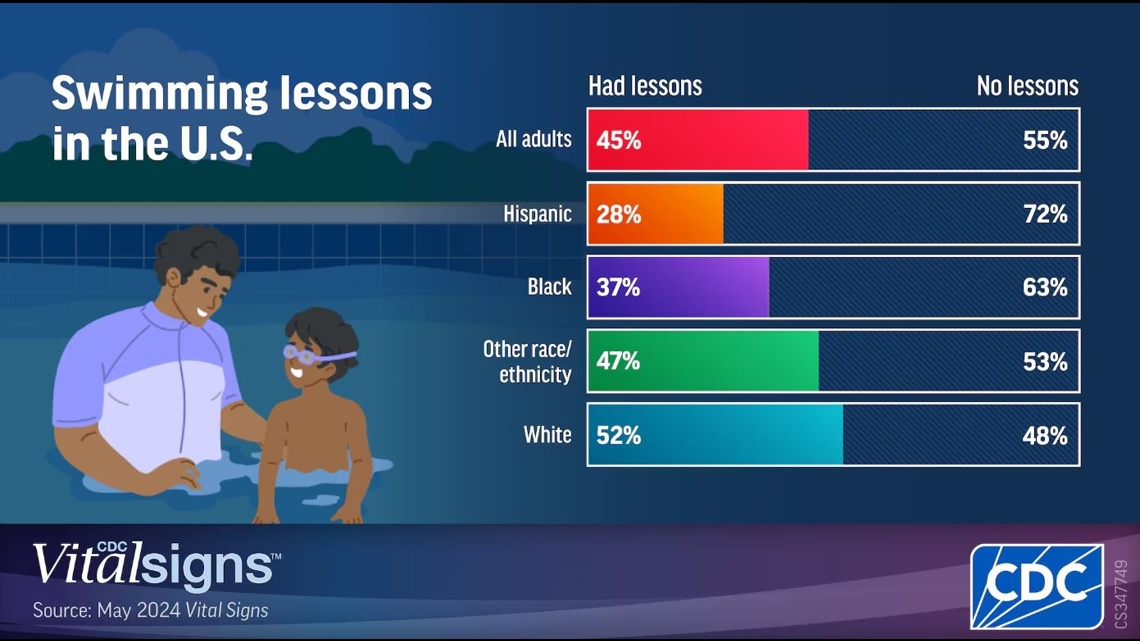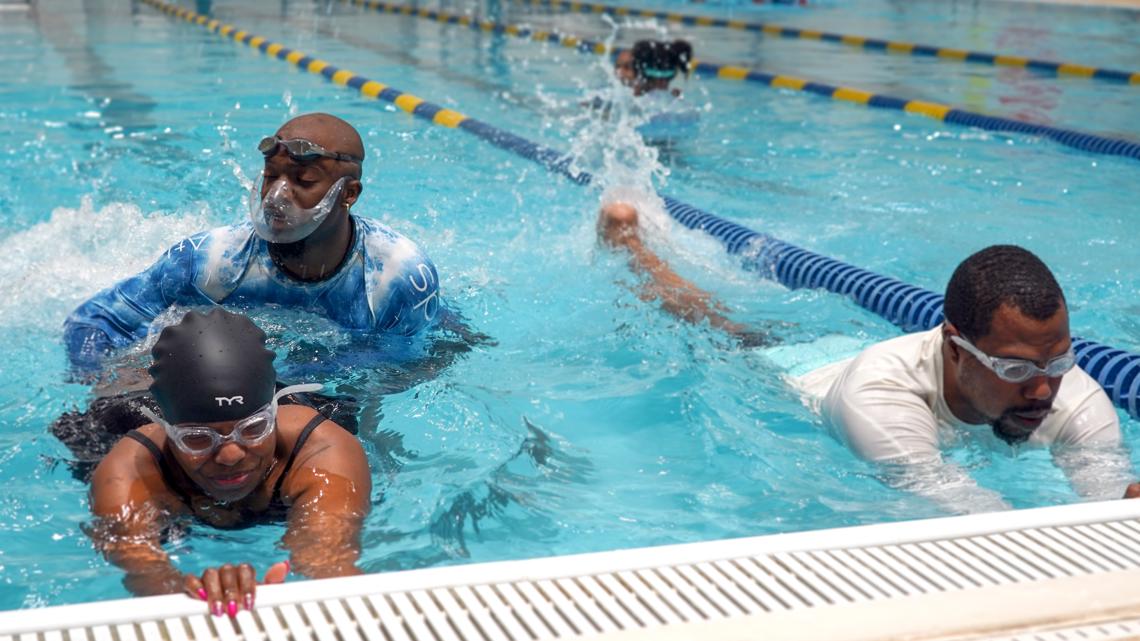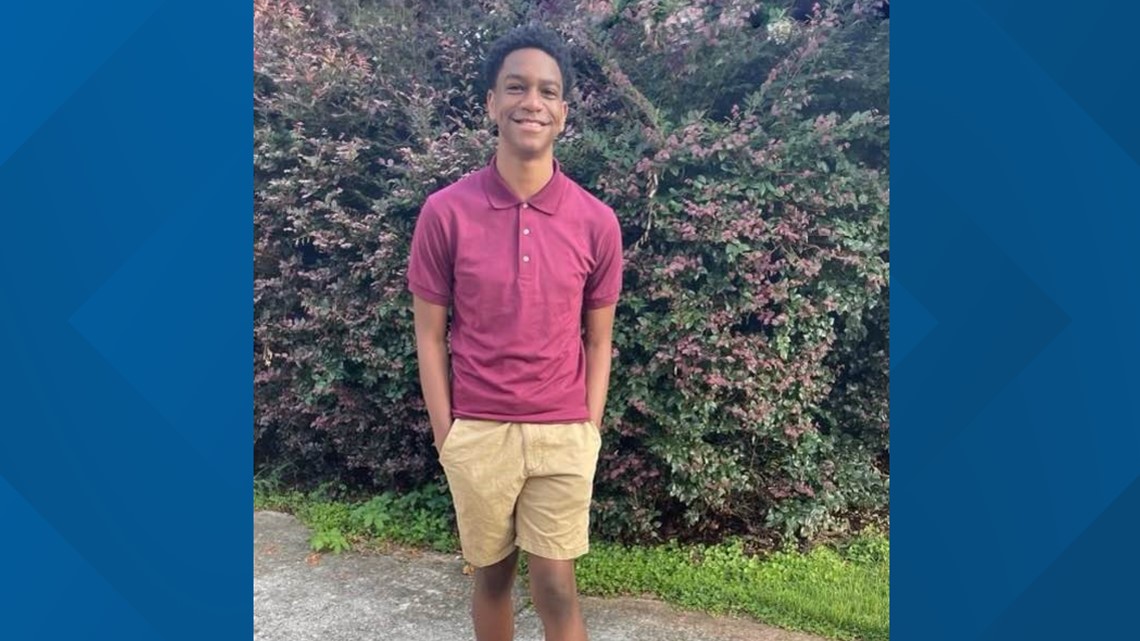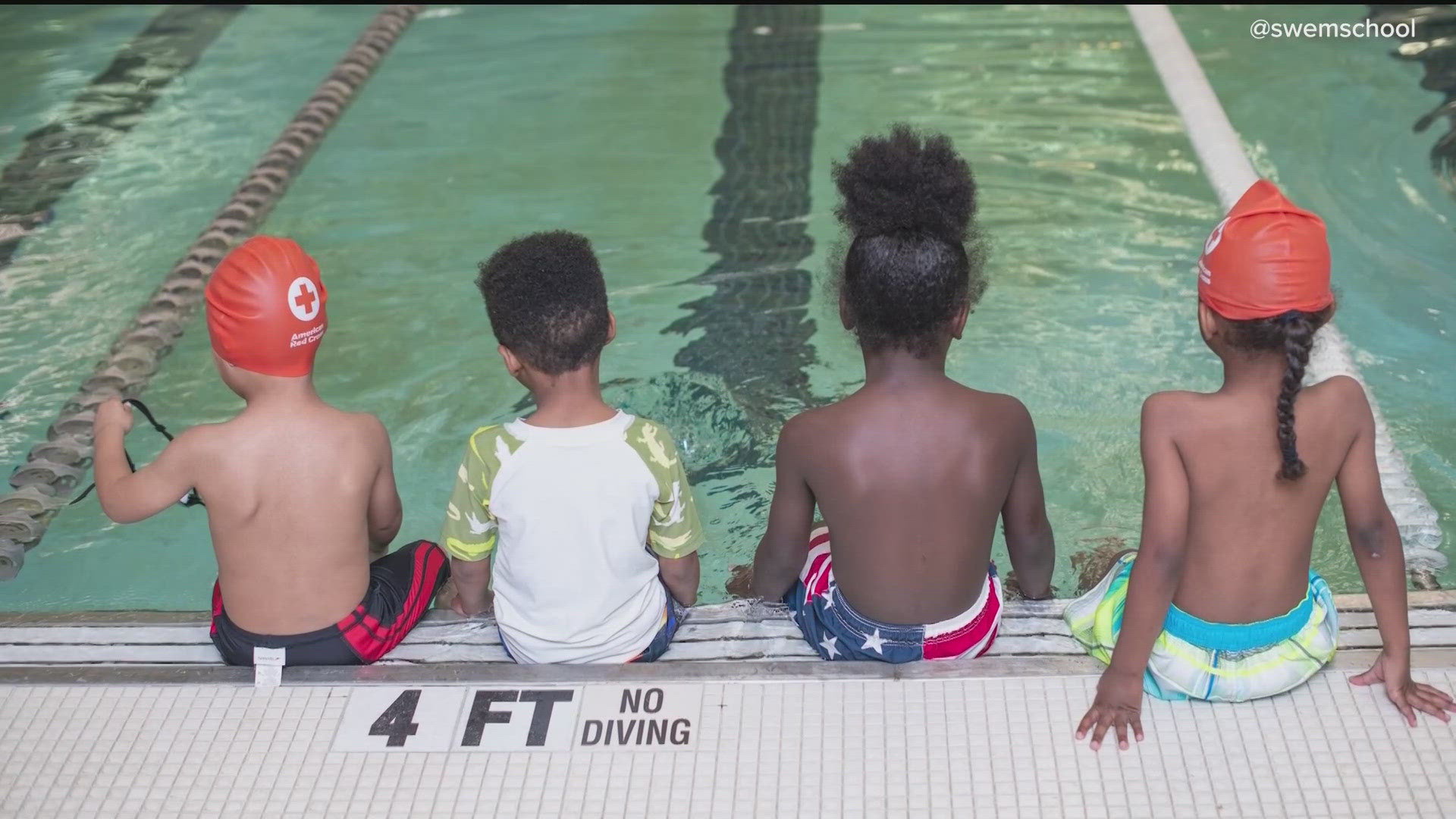ATLANTA — Black people can’t swim.
On the surface, it's a stereotype, but in reality, it reflects a troubled history with roots deeper than the ocean.
Racial disparity in swimming skills
"During the time of bondage and slavery in America, the ability to swim was actually a means of escape or potential freedom," Alfred 'Shivy' Brooks said.
Brooks is a lifelong swimmer who reclaimed the waters that Black culture has been robbed of historically.
"You advance into the days of segregation and Jim Crow. Black folks were not allowed to swim in public pools and in public facilities," Brooks said.
The aftermath of "separate but equal," like segregated swimming pools and diminishing public pools in inner cities, trickles down to the reality young Black kids in America currently face.
According to the USA Swimming Foundation, 64% of Black children don't know how to swim.
The Centers for Disease Control and Prevention reports that Black children between the ages of 10 and 14 drown in swimming pools at rates 7.6 times higher than white children.
A May 2024 CDC shows that around 37% of Black adults report not knowing how to swim either.


Freedom to learn
"It has created these generations that have gaps of knowledge where they weren't able to pass this along to their children," Trish Miller explained.
Miller is the owner of the SWEM School. The school, headquartered in Decatur, welcomes students "to the freedom of swimming," providing instruction as a solution for Black communities. Seven years in and now, the SWEM School services about 1,000 people a week, including adults wanting to learn.
"I wanted to do something because I saw that those statistics affected people that looked like me," Miller said.


She expressed that it took her a long time to face her own fears as an adult.
"When I started this, I couldn't swim. So this came from a trauma that I experienced as a teenager in the water," she explained. "That particular experience planted a seed of fear in me that took decades for me to overcome."
Access to the water
Megan Benvenuto, group vice president of the YMCA of Metro Atlanta, said swimming lessons may not always feel accessible, which is why affordability is important.
"Swim lessons are going to come behind food," Benvenuto said. "They're going to come behind clothing. They're going to come behind having a place to stay."
She also highlights the history has played in societal disparities.
"We also see that especially down here in the South and coming through segregation pools that there's (an) entire generation that don't know how to swim in families," she said, expressing how the lack of knowledge can persist.
Benvenuto said swim lessons shouldn't be treated as a privilege but as a necessity.
"It's not a want - it's a need. It's a lifesaving skill for children," Benvenuto said.
Honoring Bryce Brooks
Brooks knows about those lifesaving skills first hand.
He was a lifeguard as a teenager and now, water safety is once again his act of service, this time for a personal reason.
"I have the honor of being the father of a young man named Bryce Brooks," Alfred 'Shivy' Brooks said. "He was one of the sweetest, kindest, most-giving, community-serving individuals."
The 16-year-old Maynard Jackson High School student knew how to swim. During a spring break trip to Florida, he tried to rescue children who had been pulled by a rip current.
"He and his friends went in the water, to try to see if they can retrieve the kids and Bryce ended up going further than everyone else," Brooks explained.
His son died a hero in April 2023.


"While it's, it comes with heavy grief, to have this experience... of losing my son, in this type of way, it also comes with a great deal of honor, that I have his legacy to continue to carry on," he said.
In an effort to memorialize the brave teen, he started the Bryce Brooks Foundation to promote water safety. Whether it’s in swimming pools or the strong currents, he hopes to encourage his community to reclaim the water as a culture.
"As a reminder, when I feel like I'm facing proverbial troubled waters in my own life, I never succumb to my fear," he said.
Water safety, drowning prevention tips
The CDC issued its Vital Signs report in May 2024, with community recommendations for keeping people safe in and near water.
To prevent drownings, the CDC recommends:
- Learning basic swimming and water safety skills. Children who have had swimming lessons still need close and constant supervision when in or around water.
- Building fences that fully enclose and separate the pool from the house. Fences should be at least four feet high with self-closing and self-latching gates.
- Wearing a life jacket while boating for people of all ages and swimming abilities.
- Not drinking alcohol before or during swimming, boating, or other water activities. Alcohol impairs judgment, balance, and coordination. Do not drink alcohol while supervising children.
- Learning CPR skills. Performing CPR could save someone’s life in the time it takes for paramedics to arrive.
For more information about this report, click here.
As a community, the CDC suggests revitalizing public pools to increase access to swimming for all people, promoting affordable swimming and water safety lessons and hiring diverse aquatic staff that should also reach out to communities and build partnerships with those who are at the highest risk of drowning.
Here are other community-based organizations that can help those looking for swim lessons or more water safety tips:

